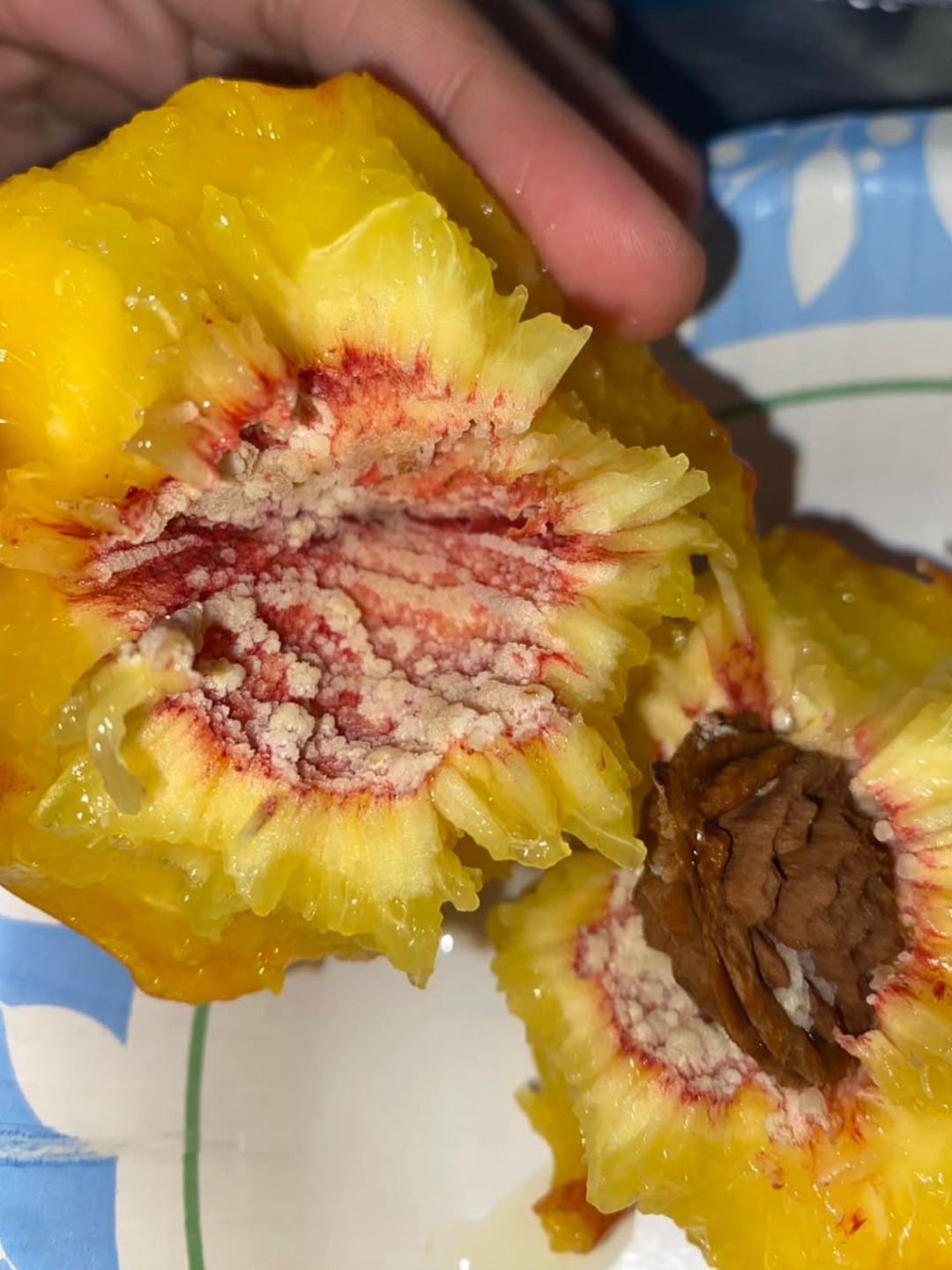How It Happens – The Science Behind the White Stuff
Peaches are stone fruits — meaning they have a hard pit surrounded by juicy flesh.
Sometimes, tiny cracks or openings in the pit allow moisture to get trapped.
In warm, humid environments (like your fruit bowl or fridge drawer), this moisture can foster the growth of natural yeasts that are already present on the fruit’s surface.
These yeasts aren’t harmful — but they multiply in the dark, damp space of the pit.
Think of it like wild yeast in sourdough — it’s part of nature’s ecosystem.
When to Be Concerned – Signs It’s Not Cottony Leak
While cottony leak is harmless, there are times when white growth is a red flag.
Watch for These Warning Signs:
White fuzz on the fruit flesh
This
is
mold — do not eat
Slimy, dark, or mushy flesh
Spoilage — discard the peach
Sour, alcoholic, or rotten smell
Fermentation or decay — not safe
Pit is cracked or leaking brown fluid
Possible internal rot or pest infestation
Bottom line:
If the fruit looks and smells good, and the white stuff is only on the pit, you were fine eating it.
If the flesh is off, throw it out.
Can You Prevent It?
You can’t always stop it — but you can reduce the risk.
Tips to Keep Peaches Fresh:
SEE NEXT PAGE
ADVERTISEMENT

